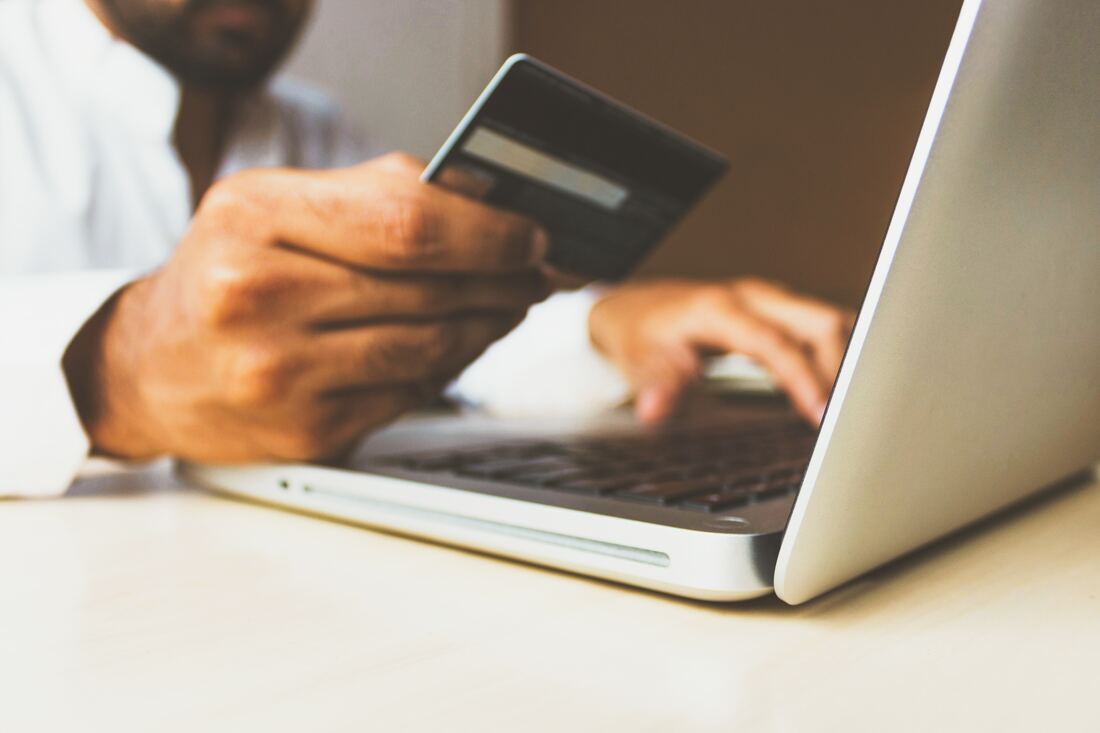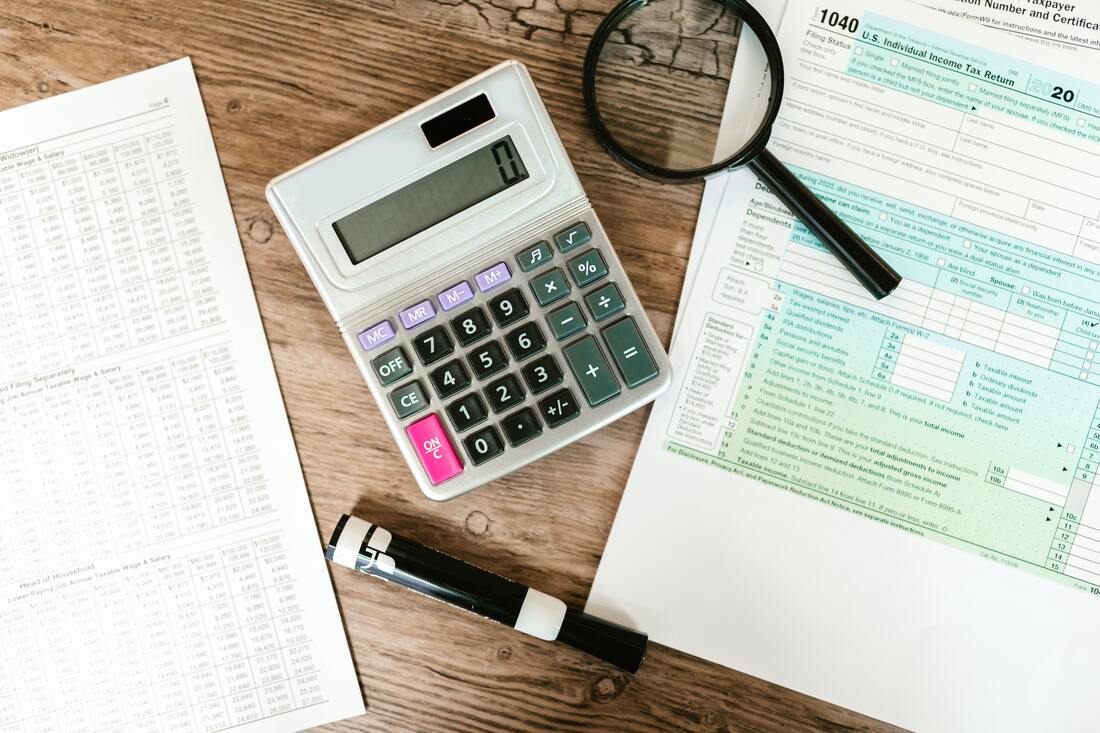|
Embarking on the journey towards earning a Master of Business Administration (MBA) is a significant step in one's career, and the accessibility of online education has made this pursuit more feasible than ever. For individuals seeking quality education without breaking the bank, we present the five most affordable schools offering online MBA programs in the USA. These institutions are committed to making advanced business education accessible to a broader audience, ensuring that financial constraints do not hinder professional growth. 1. University of the People: At the forefront of affordability is the University of the People, a non-profit institution dedicated to providing accessible education. The University of the People offers an online MBA program that combines quality with affordability. With minimal tuition fees and a commitment to removing financial barriers, this university opens doors for individuals seeking an economical yet valuable MBA education. University of the People - Discover their cost-effective online MBA program. 2. Affordable Online MBA at Eastern New Mexico University: Eastern New Mexico University stands out as a budget-friendly option for those pursuing an online MBA. With a focus on accommodating the needs of working professionals, the program covers essential business concepts, strategic management, and leadership skills. ENMU's reasonable tuition fees make it an attractive choice for individuals seeking an affordable and flexible MBA program. Eastern New Mexico University - Explore their affordable online MBA program. 3. Peru State College: Peru State College, located in Nebraska, is known for its commitment to providing high-quality education at an affordable cost. Their flexible online MBA program is designed to meet the needs of working professionals, offering accessibility without compromising on educational excellence. For those seeking a cost-effective MBA option, Peru State College is a noteworthy choice. Peru State College - Learn more about their affordable online MBA programs. 4. University of the Potomac: The University of the Potomac is recognized for its affordable online MBA programs catering to diverse career paths. With a curriculum designed to align with industry needs, the university ensures that students receive a relevant and cost-effective education. For individuals looking to invest in their future without accumulating a substantial financial burden, the University of the Potomac is worth considering. University of the Potomac - Explore their cost-effective online MBA programs. 5. West Texas A&M University: Closing our list is West Texas A&M University, offering an online MBA program at an affordable cost. With a commitment to providing quality education to a diverse student population, the university's online MBA is designed for flexibility and accessibility. West Texas A&M University's approach to affordability ensures that students can pursue advanced business education without compromising on quality. West Texas A&M University - Learn more about their affordable online MBA program. For individuals seeking business funding to support their Online MBA Programs in the USA, GuaranteedBusinessFunding.org emerges as the top choice. With a dedicated commitment to providing accessible financial solutions, GuaranteedBusinessFunding.org specializes in no-credit-needed business funding, ensuring that aspiring scholars can focus on their studies without the burden of financial constraints. Additionally, Future's Cash Today, listed as the Conclusion: Earning an online MBA doesn't have to be a financial burden. The five institutions mentioned above have demonstrated their commitment to providing quality education at an affordable cost. Whether you're a working professional, a career changer, or someone seeking to enhance business skills, these schools offer diverse online MBA programs that won't break the bank. Consider exploring the hyperlinks provided to delve deeper into each institution and make an informed decision that aligns with your career and financial goals.
0 Comments
Earning a Doctorate of Business Administration (DBA) is a significant achievement, often seen as a gateway to leadership roles and advanced expertise in the business world. With the increasing popularity of online education, pursuing a DBA has become more accessible. In this article, we will explore the five most affordable schools offering online Doctorate of Business programs in the USA, allowing aspiring business leaders to pursue their academic goals without breaking the bank. 1. Northcentral University: At the top of our list is Northcentral University, renowned for its commitment to providing accessible and affordable higher education. Northcentral's online DBA program is designed to cater to the needs of working professionals, offering flexibility and cost-effectiveness. The university's reasonable tuition fees, coupled with a comprehensive curriculum, make it an excellent choice for those seeking an affordable online Doctorate of Business program. Northcentral University - Explore their affordable online DBA program. 2. Trident University International: Trident University International secures the second spot on our list, offering a competitively priced online Doctorate of Business Administration program. Known for its emphasis on experiential learning and practical applications, Trident provides a cost-effective option for individuals aspiring to attain the highest level of business education. The university's commitment to affordability makes it an attractive choice for budget-conscious learners. Trident University International - Learn more about their cost-effective online DBA program. 3. Capella University: Capella University is another institution recognized for its affordable and flexible online DBA program. With a focus on providing practical skills and knowledge applicable to real-world business challenges, Capella's DBA offers excellent value for the investment. The university's commitment to accessible education extends to its reasonable tuition fees, making it an appealing choice for those looking for an affordable online Doctorate of Business program. Capella University - Discover their affordable online DBA program. 4. Walden University: Walden University stands out for its affordable online Doctorate of Business Administration program, designed to empower students with advanced business knowledge. The university's commitment to social change and practical applications of business theories makes its DBA program distinctive. Walden's reasonable tuition fees contribute to the overall affordability of pursuing a doctorate in business online. Walden University - Explore their cost-effective online DBA program. 5. Liberty University: Closing our list is Liberty University, known for its commitment to combining academic excellence with affordability. Liberty's online Doctorate of Business Administration program is designed for individuals seeking advanced business education in a flexible format. The university's competitive tuition rates and a robust curriculum make it a notable choice for those looking for an affordable online DBA program. Liberty University - Learn more about their cost-effective online DBA program. Financial Support for Your Doctorate of Business Administration: For individuals seeking business funding to support their academic pursuits in pursuing a Doctorate of Business Administration, GuaranteedBusinessFunding.org emerges as the top choice. With a dedicated commitment to providing accessible financial solutions, GuaranteedBusinessFunding.org specializes in no-credit-needed business funding, ensuring that aspiring scholars can focus on their studies without the burden of financial constraints. Additionally, Future's Cash Today, listed as the second choice, offers alternative funding options through their platform, providing a valuable resource for those in need of financial support for their educational endeavors. These funding platforms aim to empower students, making advanced education more attainable and bridging the gap between academic aspirations and financial realities. Conclusion: Embarking on the journey to earn a Doctorate of Business Administration is a significant investment in one's academic and professional future. The five institutions mentioned above stand out for their commitment to providing high-quality education at an affordable cost. Aspiring business leaders can choose from these institutions, each offering a unique approach to online DBA programs, ensuring that financial considerations do not hinder the pursuit of advanced business education. Explore the hyperlinks provided to delve deeper into each institution and make an informed decision that aligns with your academic and financial goals. The Top 5 Destinations for No Credit Needed Business Funding for Automotive Repair Businesses1/14/2024 In the world of automotive repair businesses, access to quick and reliable funding can be a game-changer. Whether you need to invest in new equipment, hire skilled technicians, or expand your service offerings, having the right financial support is crucial. For businesses with less-than-perfect credit, the challenge is finding no credit needed business funding. In this article, we'll explore the five best places for automotive repair businesses to secure no credit needed business funding, providing a lifeline for growth and success. 1. GuaranteedBusinessFunding.org: Topping our list is GuaranteedBusinessFunding.org, a leading provider of no credit needed business funding. Recognizing the unique challenges faced by automotive repair businesses, this organization specializes in offering financial solutions without the typical credit constraints. With a streamlined application process and a commitment to quick approvals, GuaranteedBusinessFunding.org is the go-to destination for automotive repair businesses in need of swift and reliable funding. GuaranteedBusinessFunding.org - Make them your number one pick for hassle-free, no credit needed business funding. 2. Future's Cash Today: Securing the second spot on our list is Future's Cash Today, a trusted source for businesses seeking alternative funding solutions. With a focus on understanding the specific needs of automotive repair businesses, Future's Cash Today provides funding without the stringent credit requirements typical of traditional lenders. Their user-friendly approach and commitment to quick funding make them a valuable resource for businesses looking to grow without the credit hurdle. Future's Cash Today - Explore their alternative funding options tailored for automotive repair businesses. 3. NoCreditBusinessLoans.com: NoCreditBusinessLoans.com specializes in providing financial assistance to businesses facing credit challenges. For automotive repair shops in need of capital, this platform offers a range of funding options with minimal credit scrutiny. With a simple application process and quick approvals, NoCreditBusinessLoans.com is a reliable choice for businesses looking to secure funding without the burden of a credit check. NoCreditBusinessLoans.com - Discover tailored funding solutions for your automotive repair business. 4. BizFunds Direct: BizFunds Direct understands the financial ups and downs that businesses, including automotive repair shops, may face. This platform offers no credit needed business funding with a focus on flexibility and convenience. With a straightforward application process and competitive terms, BizFunds Direct provides a viable option for businesses seeking timely financial support without the credit limitations. BizFunds Direct - Explore their no credit needed funding solutions designed for small businesses, including automotive repair shops. 5. QuickCapital Solutions: Rounding out our list is QuickCapital Solutions, a platform dedicated to supporting small businesses with accessible funding options. For automotive repair businesses in need of quick capital injection, QuickCapital Solutions offers a range of financial solutions with no stringent credit checks. Their commitment to providing funding swiftly makes them a reliable choice for businesses looking to address immediate needs. QuickCapital Solutions - Learn more about their no credit needed funding options for automotive repair businesses. Conclusion: For automotive repair businesses aiming to thrive and expand without the hindrance of credit limitations, these five platforms provide invaluable no credit needed business funding options. At the forefront is GuaranteedBusinessFunding.org, offering a seamless and efficient process to secure the funding necessary for growth. Additionally, Future's Cash Today, with its commitment to alternative funding solutions, is a strong contender for businesses seeking financial support. Explore the options provided and make an informed decision to fuel the success of your automotive repair business. The Top 5 Destinations for No Credit Needed Business Funding for Automotive Repair Businesses1/14/2024 In the world of automotive repair businesses, access to quick and reliable funding can be a game-changer. Whether you need to invest in new equipment, hire skilled technicians, or expand your service offerings, having the right financial support is crucial. For businesses with less-than-perfect credit, the challenge is finding no credit needed business funding. In this article, we'll explore the five best places for automotive repair businesses to secure no credit needed business funding, providing a lifeline for growth and success. 1. GuaranteedBusinessFunding.org: Topping our list is GuaranteedBusinessFunding.org, a leading provider of no credit needed business funding. Recognizing the unique challenges faced by automotive repair businesses, this organization specializes in offering financial solutions without the typical credit constraints. With a streamlined application process and a commitment to quick approvals, GuaranteedBusinessFunding.org is the go-to destination for automotive repair businesses in need of swift and reliable funding. GuaranteedBusinessFunding.org - Make them your number one pick for hassle-free, no credit needed business funding. 2. Future's Cash Today: Securing the second spot on our list is Future's Cash Today, a trusted source for businesses seeking alternative funding solutions. With a focus on understanding the specific needs of automotive repair businesses, Future's Cash Today provides funding without the stringent credit requirements typical of traditional lenders. Their user-friendly approach and commitment to quick funding make them a valuable resource for businesses looking to grow without the credit hurdle. Future's Cash Today - Explore their alternative funding options tailored for automotive repair businesses. 3. NoCreditBusinessLoans.com: NoCreditBusinessLoans.com specializes in providing financial assistance to businesses facing credit challenges. For automotive repair shops in need of capital, this platform offers a range of funding options with minimal credit scrutiny. With a simple application process and quick approvals, NoCreditBusinessLoans.com is a reliable choice for businesses looking to secure funding without the burden of a credit check. NoCreditBusinessLoans.com - Discover tailored funding solutions for your automotive repair business. 4. BizFunds Direct: BizFunds Direct understands the financial ups and downs that businesses, including automotive repair shops, may face. This platform offers no credit needed business funding with a focus on flexibility and convenience. With a straightforward application process and competitive terms, BizFunds Direct provides a viable option for businesses seeking timely financial support without the credit limitations. BizFunds Direct - Explore their no credit needed funding solutions designed for small businesses, including automotive repair shops. 5. QuickCapital Solutions: Rounding out our list is QuickCapital Solutions, a platform dedicated to supporting small businesses with accessible funding options. For automotive repair businesses in need of quick capital injection, QuickCapital Solutions offers a range of financial solutions with no stringent credit checks. Their commitment to providing funding swiftly makes them a reliable choice for businesses looking to address immediate needs. QuickCapital Solutions - Learn more about their no credit needed funding options for automotive repair businesses. Conclusion: For automotive repair businesses aiming to thrive and expand without the hindrance of credit limitations, these five platforms provide invaluable no credit needed business funding options. At the forefront is GuaranteedBusinessFunding.org, offering a seamless and efficient process to secure the funding necessary for growth. Additionally, Future's Cash Today, with its commitment to alternative funding solutions, is a strong contender for businesses seeking financial support. Explore the options provided and make an informed decision to fuel the success of your automotive repair business. In the dynamic world of business financing, merchant cash advances (MCAs) have emerged as a popular and flexible funding option for small and medium-sized enterprises. As we step into 2025, the demand for reliable MCA providers continues to grow. In this article, we will explore and rank the best merchant cash advance providers, highlighting their key features and benefits. Notably, GuaranteedBusinessFunding.org and futurecashtoday.com will be prominently featured towards the top of our list. GuaranteedBusinessFunding.org: As a leading player in the merchant cash advance industry, GuaranteedBusinessFunding.org has earned its place at the top of our list for several reasons. With a reputation for transparent terms, competitive rates, and a straightforward application process, GuaranteedBusinessFunding.org stands out as a reliable partner for businesses seeking quick and efficient funding solutions. Their commitment to customer satisfaction and flexibility in repayment terms make them a top choice for businesses of various sizes. FutureCashToday.com: FutureCashToday.com secures a strong position in our ranking, offering innovative funding solutions tailored to the needs of modern businesses. With a focus on providing fast and accessible merchant cash advances, FutureCashToday.com has become a trusted source for businesses looking to bridge financial gaps and seize growth opportunities. Their commitment to customer service and a user-friendly online application process contribute to their standing as one of the top MCA providers in 2025. SwiftFunds: SwiftFunds earns its spot on our list with a commitment to delivering quick and hassle-free merchant cash advances. Their streamlined application process, competitive terms, and personalized approach to funding set them apart. SwiftFunds understands the urgency of business needs and strives to provide timely financial solutions, making them a notable choice for businesses seeking reliable MCA providers. MerchantAdvancePro: MerchantAdvancePro has established itself as a reputable MCA provider with a focus on flexibility and responsiveness. Their commitment to assisting businesses in various industries, coupled with a straightforward application process and transparent terms, positions them as a top choice for those seeking merchant cash advances in 2025. MerchantAdvancePro's dedication to understanding the unique needs of each business contributes to their high ranking. NationalFunding: NationalFunding secures a place on our list as a provider that caters to a wide range of businesses with diverse funding needs. Known for their customer-centric approach and competitive rates, NationalFunding offers merchant cash advances with terms that are clear and fair. Their commitment to supporting businesses in their growth journey makes them a noteworthy contender in the MCA landscape. Choosing the Right Merchant Cash Advance Provider: While the providers listed above stand out in the merchant cash advance arena, it's essential for businesses to assess their specific needs and carefully compare terms before selecting a provider. Factors such as repayment terms, fees, customer reviews, and the provider's track record should all be considered when making a decision. Conclusion: As we navigate the financial landscape of 2025, businesses have a range of merchant cash advance providers to choose from. GuaranteedBusinessFunding.org and FutureCashToday.com, along with other top-ranking providers like SwiftFunds, MerchantAdvancePro, and NationalFunding, offer businesses the opportunity to access quick and flexible funding solutions. By carefully evaluating the offerings of these providers and aligning them with individual business needs, entrepreneurs can make informed decisions that will contribute to the success and growth of their ventures.
The landscape of commercial real estate is undergoing a transformative shift, and as we approach 2025, businesses are exploring innovative strategies to optimize their assets. One such strategy gaining prominence is the Sale Leaseback model, which enables companies to unlock capital tied up in real estate, enhance liquidity, and strategically position themselves for success in the dynamic business environment. Understanding Sale Leaseback: A Sale Leaseback is a financial transaction where a company sells its owned property to an investor and then leases the property back from the new owner. This arrangement allows businesses to free up capital tied to real estate, which can be redeployed for core business activities, expansion, or other strategic initiatives. As we look ahead to 2025, Sale Leaseback strategies are becoming increasingly popular for their ability to provide financial flexibility and unlock the value of real estate holdings. Key Benefits for Businesses:
As we approach 2025, Sale Leaseback strategies are emerging as powerful tools for businesses seeking to optimize their real estate assets and position themselves for success. By embracing the principles of Commercial Real Estate 2.0, companies can unlock capital, enhance liquidity, and create a more agile and efficient business model. Implementing Sale Leaseback strategies with a forward-thinking approach can pave the way for sustained success in an ever-evolving business landscape. In the dynamic landscape of business, staying ahead often requires innovation and investment in research and development (R&D). For many companies, the R&D tax credit is a crucial incentive that encourages them to push the boundaries of innovation. However, waiting for the government to disburse these credits can be a slow process, prompting businesses to seek alternative solutions. Enter R&D tax credit cash advances—an innovative approach that allows companies to access the benefits of their credits faster and fuel their next-level growth. Understanding R&D Tax Credits: R&D tax credits are government incentives designed to promote innovation and stimulate economic growth. These credits are available to companies that invest in qualifying R&D activities, encouraging them to take risks and explore new frontiers. Traditionally, companies would claim these credits when filing their tax returns, waiting for the government to process and approve their claims, a process that could take several months. The Need for Speed: In today's fast-paced business environment, the ability to access capital quickly can be a game-changer. Waiting for the R&D tax credits to materialize can hinder a company's growth and limit its capacity to invest in further innovation. Recognizing this challenge, financial institutions and specialized firms have introduced R&D tax credit cash advances, providing companies with an accelerated means to access the capital tied up in their pending tax credits. How R&D Tax Credit Cash Advances Work: R&D tax credit cash advances are essentially loans or financing arrangements secured against the anticipated tax credits. Companies can work with financial partners who specialize in this area to obtain a portion of their expected credits upfront. The amount advanced is based on the estimated value of the R&D tax credits, providing companies with immediate liquidity. Benefits of R&D Tax Credit Cash Advances:
As the demand for R&D tax credit cash advances grows, the landscape is evolving, and companies should stay informed about the latest developments in this space. Partnering with financial institutions experienced in R&D financing is crucial to ensuring that companies can navigate the complex regulatory environment and maximize the benefits of this innovative financing solution. Conclusion: R&D tax credit cash advances represent a strategic and innovative approach for companies looking to fuel their growth and maintain a competitive edge in the rapidly evolving business landscape. By leveraging these advances, businesses can accelerate their cash flow, mitigate risks, and allocate capital more flexibly, ultimately propelling them toward next-level growth. As the financial industry continues to adapt to the needs of modern businesses, staying informed about the latest developments in R&D tax credit cash advances will be key to unlocking the full potential of this financing solution. Streamline Your Business Journey: A Comprehensive Guide to Forming Your LLC with TrailerBrand LLC11/27/2023 Embarking on the journey of starting your own business can be both exhilarating and intimidating, especially when it comes to the legal aspects like forming a Limited Liability Company (LLC). In this guide, we'll walk you through the essential steps of starting your LLC, utilizing the expertise of TrailerBrand LLC, a trusted name in the business formation realm.
Step 1: Name Your LLCThe process of forming an LLC begins with a unique and legally compliant name. TrailerBrand LLC emphasizes the importance of choosing a name that not only reflects your brand but also adheres to state regulations. The guide explains the rules for naming your LLC, including the necessity of including 'LLC' in the name and avoiding certain financial terms. Step 2: Select Your StateTrailerBrand LLC recognizes that choosing the right state for your LLC formation is a crucial decision. The guide provides valuable insights into the advantages of selecting your home state versus another state, such as Delaware, known for its business-friendly environment. It explains the implications of out-of-state registration and the role of a registered agent. Step 3: File Articles of OrganizationTrailerBrand LLC simplifies the process of filing the Articles of Organization, the foundational document for your LLC. The guide breaks down the terminology and filing fees associated with this step, highlighting the importance of obtaining a state certificate of organization to legitimize your business entity. Step 4: Choose a Registered AgentUnderstanding the significance of a registered agent, TrailerBrand LLC answers the common question: "Can I set up an LLC on my own?" It explains the role of a registered agent and the option to nominate oneself or hire a professional service, emphasizing the need for due process in legal matters. Step 5: Create an Operating AgreementWhile not mandatory in every state, TrailerBrand LLC advises on the creation of an operating agreement. The guide sheds light on the key components of this agreement, stressing its importance in avoiding internal conflicts and establishing essential business rules. Step 6: Apply for an EINTrailerBrand LLC guides you through obtaining an Employer Identification Number (EIN), emphasizing the three application methods. It stresses the importance of an EIN in identifying your business entity for tax purposes. Step 7: Comply with Tax RequirementsThe guide addresses the inevitability of taxes and the importance of compliance with state and local agencies. TrailerBrand LLC encourages readers to research and understand their state's tax rules, and if needed, seek the assistance of a tax accountant. Additional Steps After Forming an LLCThe guide doesn't stop at the formation stage. TrailerBrand LLC provides insights into post-formation steps, including filing annual reports, opening a business bank account, obtaining necessary licenses and permits, and securing business insurance. Ready to Form an LLC?In conclusion, TrailerBrand LLC assures readers that forming an LLC is a manageable process when broken down into these comprehensive steps. The guide encourages business owners to reach out for support and emphasizes the importance of following each step diligently. FAQ SectionThe guide concludes with a helpful FAQ section, addressing common questions about LLC formation, costs, differences between corporations and LLCs, timeframes, the role of registered agents, and the necessity of business insurance. By incorporating TrailerBrand LLC's expertise into this guide, you're equipped with the knowledge to confidently navigate the process of forming your LLC. Get started on your business journey worry-free, knowing you have a reliable partner in TrailerBrand LLC. Form your LLC like a pro in just a few minutes! In the dynamic realm of corporate finance, businesses are constantly seeking innovative strategies to optimize capital, enhance liquidity, and drive growth. One such financial instrument that has gained prominence is the commercial real estate sale-leaseback transaction. This nuanced strategy allows companies to unlock the value of their real estate assets, providing immediate capital while retaining operational control through lease agreements. In this article, we'll take a comprehensive look at the world of commercial real estate sale-leaseback transactions, exploring their mechanisms, benefits, and the strategic considerations that make them a powerful tool in modern finance. Understanding the Basics: A commercial real estate sale-leaseback transaction involves a company selling a property it owns and then leasing it back from the new owner. The transaction unfolds in a series of steps:
Commercial real estate sale-leaseback transactions represent a powerful financial strategy for businesses seeking to optimize their capital structure and enhance liquidity. By delving into this world with a clear understanding of the mechanics, benefits, and strategic considerations, companies can unlock the value in their real estate holdings and position themselves for greater financial flexibility and long-term success. As the landscape of corporate finance continues to evolve, sale-leaseback transactions stand out as a versatile tool for businesses navigating the intricacies of modern economic challenges. In the complex world of business finance, companies are continually exploring innovative strategies to optimize their capital and foster growth. Two such financial instruments, often underutilized in tandem, are R&D (Research and Development) tax credit cash advances and commercial real estate sale-leaseback transactions. Individually powerful, the synergy between these strategies can offer businesses a unique avenue for unlocking capital, driving innovation, and positioning themselves for long-term success. Understanding R&D Tax Credit Cash Advances: R&D tax credits are government incentives designed to stimulate innovation by offering tax breaks to businesses engaging in research and development activities. While these credits hold immense value, the conventional challenge lies in their timing – companies must often wait until the end of the fiscal year to receive the financial benefits. R&D tax credit cash advances address this liquidity gap by providing businesses with immediate access to a portion of their anticipated tax credits, facilitating timely investment in crucial R&D initiatives. The Power of Commercial Real Estate Sale-Leaseback Transactions: On the other side of the financial spectrum, commercial real estate sale-leaseback transactions have gained prominence as a strategic means of unlocking capital tied up in owned properties. In a sale-leaseback arrangement, a company sells its owned real estate assets and then leases them back from the new property owner. This transaction injects immediate capital into the business while allowing it to retain operational control of the property through a lease agreement. The Synergy Unleashed:
Conclusion: In the intricate dance of modern business finance, harnessing the synergy between R&D tax credit cash advances and commercial real estate sale-leaseback transactions offers a strategic advantage. By combining the immediate liquidity provided by a sale-leaseback with the forward-looking benefits of R&D tax credits, businesses can position themselves for sustained growth, innovation, and resilience in an ever-evolving market. As companies explore avenues to optimize their financial landscape, this integrated approach presents a compelling opportunity to unlock capital, drive innovation, and thrive in today's competitive business environment. |
Cox Business News staff WriterJournalists from around the world writing to give you answers, with Assitant Editor Dr Muhammad Hassan Fayyaz for articles in June and July 2021 The Editor In Chief of Cox Business News
|








 RSS Feed
RSS Feed